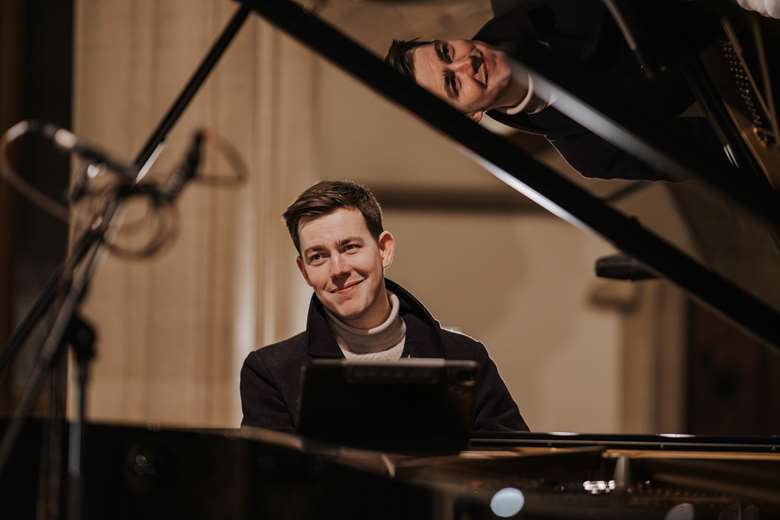Classical Pride at the Barbican: Choosing joy over fear
Edward Picton-Turbervill
Thursday, June 19, 2025
'Rather than focusing on protest, we lead with love, hope and positivity – using our voices to broadcast loving kindness'

When we were asked to programme a concert for Classical Pride, Jonathan Eyers, Harriet Burns and I quickly settled on ‘Joy’ as the theme that we wanted to share and celebrate with audiences. In recent years, shows like Queer Eye and RuPaul’s Drag Race have become bywords for joy – a liberating, technicolour alternative to fear, hatred, and the hard grind of daily life. We wanted to explore this theme through classical music, and we have recorded a distillation of that programme in our recent EP with Platoon, All Shall be Well. Rather than focusing on Pride as protest, we wanted to lead with love, hope and positivity.
There is certainly a danger that choosing to lead with joy at this moment in time might at best be seen as naïve, at worst, as ignorant and insensitive. What is the appropriate response to the challenges of the current situation from our immensely privileged position in a peaceful and prosperous society? How should we be using our voices?
In The Republic [book 3, 401], Plato argues that ‘more than anything else rhythm and harmony find their way to the inmost soul and take strongest hold upon it, bringing with them and imparting grace if one is rightly trained, and otherwise the contrary’. This power places a serious responsibility on the artist, and I think we always have to consider what message we are broadcasting from the stage. When I set out to write Always Rejoicing, a new song commissioned by the City Music Foundation, I was trying to create a song that would be like a mug of chicken soup; something intended to soothe, heal and nourish. I was searching for a sound that was part Gospel, part Ballad, and Jonathan’s rich, generous baritone seemed ideally suited.
In Judith Weir’s gleeful and ingenious setting of Lady Isobel and the Elf-Knight, she brings to life an old Scottish ballad about Lady Isobel tricking the Elf-Knight. This song is unlike anything else I have played, with an unusual and idiomatic accompaniment. It’s pure magic – so lively, so full of wonder and mystery. My solo piano piece, Count it All Joy, takes its title from the Book of James: ‘Count it all joy, brethren, when you fall into various trials’ – the melodic major mode conjures up a bittersweet nostalgia and puts me in mind of Blake – ‘Man was made for joy and woe’.
We continue in contemplative mode with À Chloris, surely one of the most beautiful songs ever written, where Harriet sings of her incomparable joy at being loved. Hahn, who had an intimate relationship with Marcel Proust, is in full Parnassian mode here, evoking ancient Greece in pseudo-Baroque style. It’s then a case of ‘up and out’ in the joyous rhythms of Ricky Ian Gordon’s setting of Langston Hughes. The deliberate ambiguity of Hughes’ poem (‘I found [Joy]… In the arms of the butcher boy’) takes on a delightfully definite meaning when sung by Jonathan (the song is more usually sung by sopranos). The album closes with Stephen Hough’s ecstatic setting of Julian of Norwich – Hough’s virtuosic chains of coruscating chords call to mind Messiaen, bright sunlight and stained glass.
I believe that using our voices to broadcast loving kindness is an overtly political act. Art shapes the world – it is what preserves our humanity, and helps us to heal the damage done by violence. We are not powerless, and Love is never futile.





